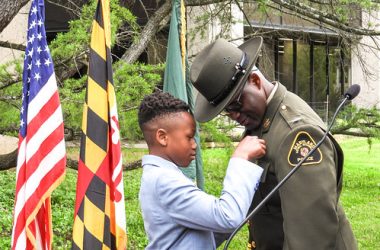 Map of chronic wasting disease management area in Allegany and Washington counties
Map of chronic wasting disease management area in Allegany and Washington counties
The Maryland Department of Natural Resources has re- ported that 53 white-tailed deer sampled within Allegany and Washington counties in 2021 tested positive for chronic wasting disease, a neurodegenerative disease found in deer and elk.
All of Maryland’s positive samples were found within the existing Chronic Wasting Disease Management Area.
“Chronic wasting disease continues to spread both regionally and nationally, and we continue to monitor this disease using the best science available to minimize the impact on our deer population and this valuable resource,” Wildlife and Heritage Service Director Paul Peditto said.
Since 1999, the department has tested more than 11,500 deer for chronic wasting disease. A total of 710 samples were collected in 2021 from Allegany, Frederick, Garrett, Montgomery, and Washington counties. Despite the increasing occurrence of positive cases within Allegany and Washington counties, to date, chronic wasting disease has not been detected outside of the existing
Chronic Wasting Disease Management Area. Chronic wasting disease was first confirmed in Mary- land in February 2011.
Since then, Maryland, Pennsylvania, Virginia, and West Virginia have all documented chronic wasting disease in the region.
The latest findings bring the number of positive cases in Maryland to 133. The 2021 sampling marks an increase in cases, but Maryland’s positive sampling remains lower compared to other states in the region.
Concerns about chronic wasting disease should not stop anyone from hunting deer or enjoying venison, say wildlife officials.
Research suggests the disease cannot be naturally transmitted to humans. However, as a general safety precaution, it is recommended that hunters avoid consuming
the meat of sick animals, as well as the brain, lymph nodes, or spinal column of any deer all of which are normally removed during the butchering process.
More information on chronic wasting disease in Maryland is available on the DNR website. Anyone with questions may contact the department at 410-260-8540.



